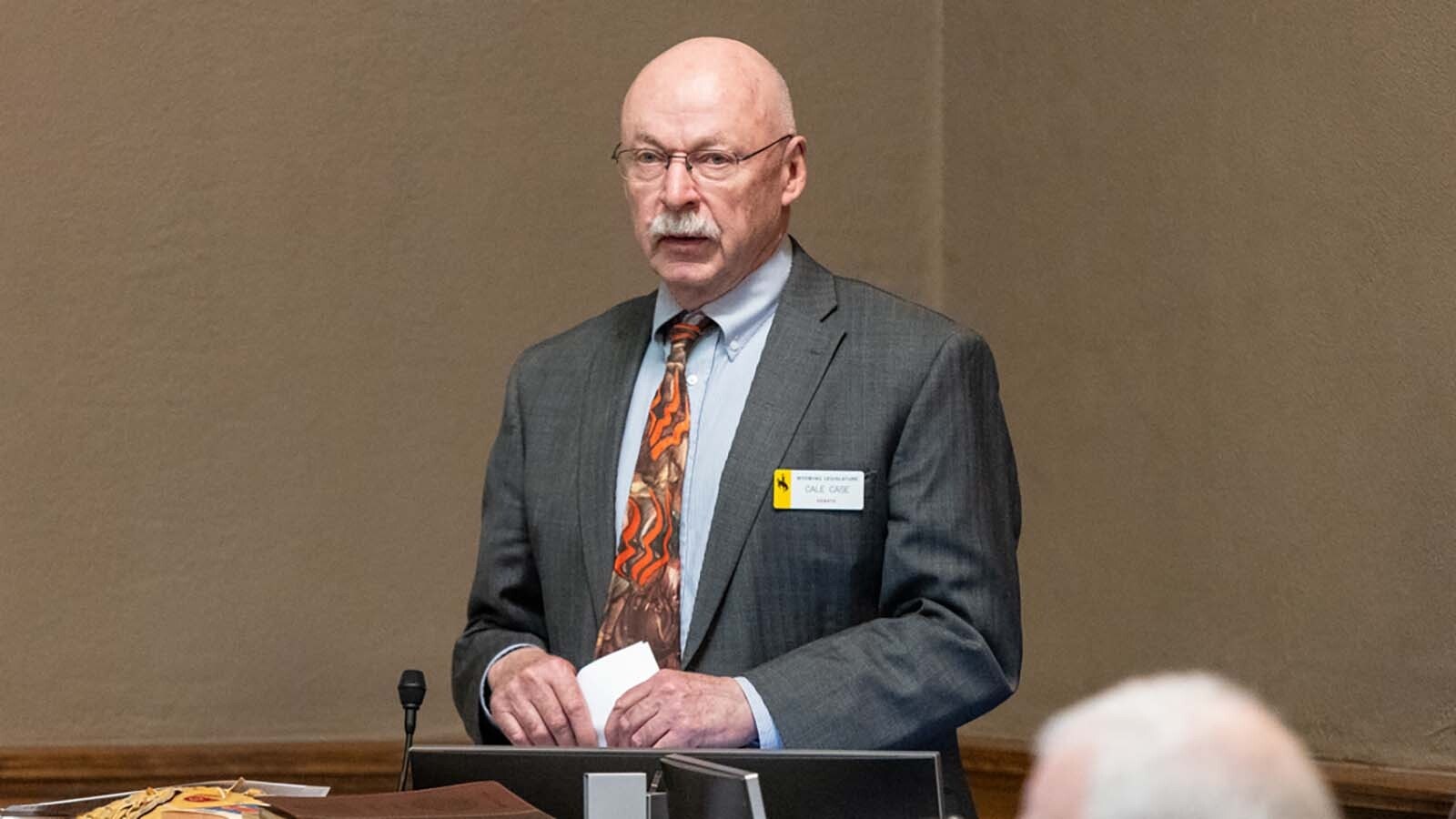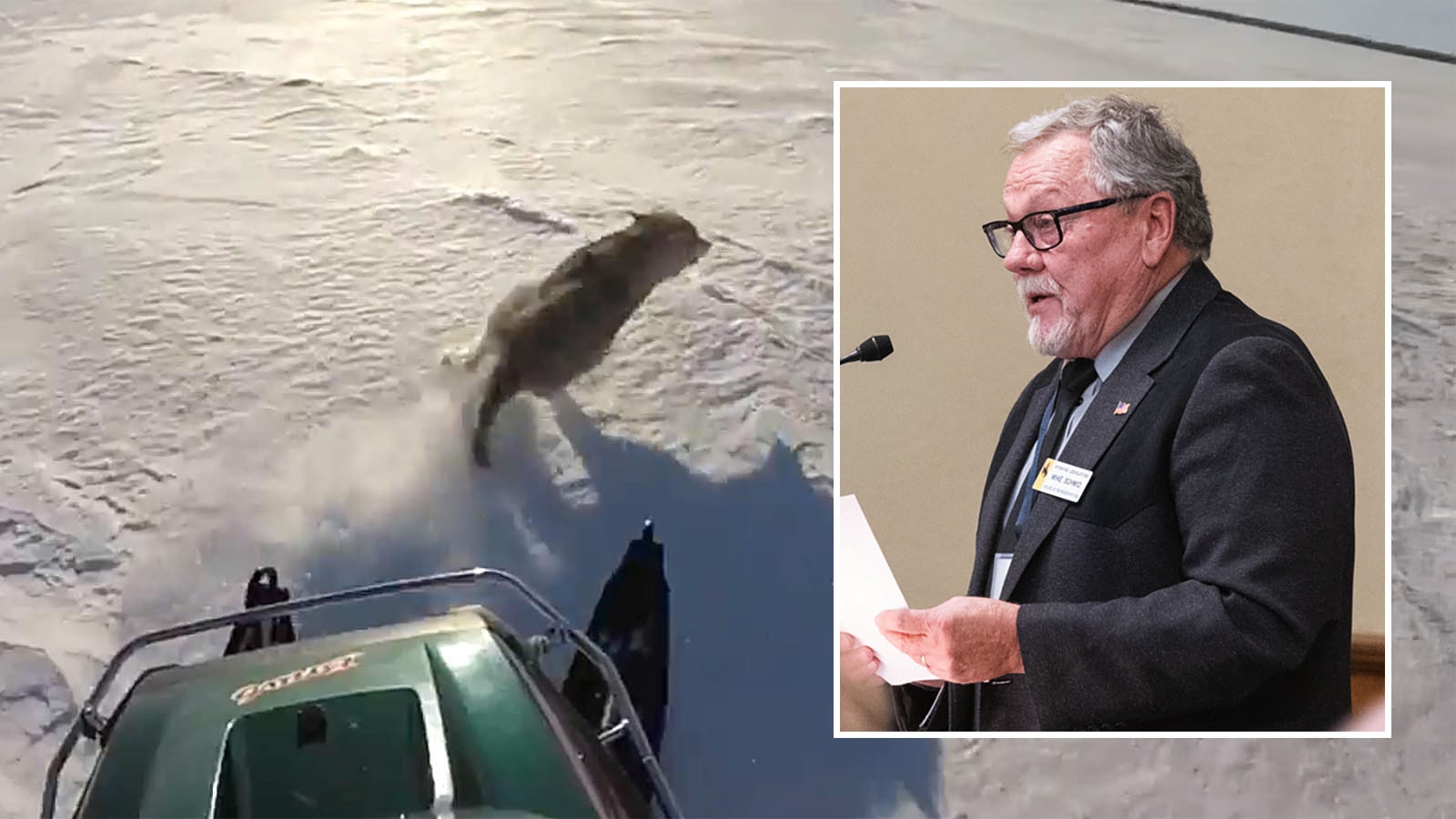A Cheyenne-based judge on Friday temporarily blocked the first phase of payouts in a new school-choice program built to give $7,000 toward private schools or homeschool programs for Wyoming students.
The Wyoming Education Association and nine parents of public-school children asked Laramie County District Court Judge Peter Froelicher this month to block the Steamboat Legacy Scholarship Act from going into effect altogether during the group’s challenge against it.
The payouts to applicants were scheduled to begin Tuesday, July 1.
WEA calls the program unconstitutional and harmful to families of public-school children who may not be accepted into private schools.
Conversely, the top state lawyer arguing on behalf of Superintendent of Public Instruction Megan Degenfelder and Treasurer Curt Meier — who were to mobilize the program in their own capacities — said the program is an offering beyond and apart from the state’s duty under the Wyoming Constitution to furnish complete and uniform public education.
Froelicher gave what he called a narrowed and temporary solution: He’s going to research the issue and work until the middle of July toward a written order, which will either deny or grant the WEA’s request for a preliminary injunction blocking the law.
Judge's Opinion Key
But in the meantime, he’s going to block the law “narrowly” by barring the state or its contractor from distributing the school-choice grants to private school providers.
The state can still work on parent applications and other administrative measures, said Froelicher after a three-hour court hearing in Cheyenne on Friday.
One question the parties posed to Froelicher is whether blocking the law would preserve the status quo by keeping public money in state hands, or upset the status quo by stripping families of money they’re expecting as they prepare for the upcoming school year.
It is a higher legal hurdle for a plaintiff to get a judge to block a law if the block would upset the status quo.
“I believe the status quo is to keep the money in the state’s coffers,” concluded Froelicher. “In essence it’s just — in my opinion, and I guess that’s what matters at this point — keeping the status quo on the finances.”
Had it been allowed to go into effect on schedule, the act would have distributed the first of four annual payments to approved families for a private contractor to send to educational entities starting July 1.
Of the families that have applied for the grants, 3,809 have been approved, according to the Wyoming Department of Education.
‘Unsurpassed’
Greg Hacker argued Friday for WEA that the school-choice program violates the Wyoming Constitution’s multiple mandates for providing a quality education to the students of the state, such as requirements for thoroughness, uniformity and adequacy.
Providing a public education system that is “both visionary and unsurpassed” is a paramount priority of the Wyoming Legislature, Hacker quoted from an earlier state Supreme Court case.
The program also violates financial provisions of the state Constitution, Hacker argued, such as one barring the appropriation of money for education to entities not under state control.
He emphasized religious and other private schools’ looser provisions regarding which students they can refuse to accept, the school-choice program’s more flexible testing requirements for institutions receiving the grant money, and what he cast as a lack of state oversight.
“Lack of oversight, lack of accountability — all those things collectively make the program not complete and (not) uniform; not thorough and (not) efficient; not adequate,” said Hacker. “The state therefore is funding a system where it’s adding to its public education system a form of education that meets none of the criteria it’s obligated to (meet).”
Wyoming Attorney General Senior Assistant Mackenzie Williams argued, conversely, that simply adding an extra category of services doesn’t violate the state’s duty to provide a quality public education system.
To Williams, the school-choice grants support a system that is separate and apart from the public school system, and therefore not under the same restrictive parameters the constitution and the courts interpreting it over the past 30 years have heaped upon the Wyoming Legislature.
Thomas Fisher, an attorney arguing on behalf of families who seek to join the case to defend the program, put the question this way: “If we zero out the funding for the (scholarship) program, would anyone think that’s (violating a fundamental right)? Of course not.”
By that logic, added Fisher, funding the program as an extra service doesn’t violate a fundamental right either.
Where’s The Harm
To convince a judge to block a law during its challenge (where doing so wouldn’t upset the status quo),plaintiffs have to show that they’re likely to win the suit on its merits, and that they’ll be irreparably harmed if the law is not blocked in the meantime.
The parties sparred the most over the concept of irreparable harm and the question of whether nine suing parents — some of them educators — with public-school children could be harmed by the rollout of the school-choice grants.
“Plaintiffs have shown no irreparable harm,” argued Williams.
Fisher elaborated: “There’s no theory under which an injunction would change anything for any of the plaintiffs.”
The parents suing Wyoming have theorized that their children, who have disabilities and some of whom are non-conforming in gender identity or sexual orientation, would not be accepted into local private schools, and therefore couldn’t access the program’s advantages.
These are mere theories, said Fisher.
Froelicher asked the attorneys whether the potential of the program to siphon off public school students and thereby reduce public schools’ attendance-based budgets comprises a harm.
Those losses are proportionate to a decrease in responsibility, said Williams: where a school has less money, it also has fewer students to educate.
The Inherent Harm
Hacker told the judge that where a person’s fundamental right is violated, the irreparable harm to that person is inherent.
That’s a federal standard that surfaces frequently in First Amendment cases.
Froelicher challenged Hacker to cite a case concluding that same concept under the Wyoming Constitution.
Hacker said he doesn’t know of one. But, stressing the Wyoming Constitution’s firm promise of an educational right, Hacker said such a finding under it “is appropriate.”
We Respect...
WEA voiced its appreciation for Froelicher's temporary restraining order in a Friday statement posted to social media.
“We respect the court’s careful approach in temporarily pausing the program,” Wyoming Education Association President Kim Amen said in the statement. “Preserving the status quo allows time for a thorough review of the legal and constitutional issues involved, which are of great importance to Wyoming’s public education system. We believe it’s critical that public funds remain dedicated to supporting the public schools that serve 93% of Wyoming’s students.”
The Wyoming Freedom Caucus, a group of Republican lawmakers that backs school-choice legislation, derided the temporary order in a Friday statement as a sign that Froelicher had concluded that the program would wreak serious and irreparable harm.
Froelicher did not issue that finding in court. Wyoming case law indicates, rather, that temporary restraining orders, like the one Froelicher issued, hinge upon "possible" irreparable injury to the plaintiff.
The Freedom Caucus renewed its commitment to school choice, saying it will continue to fight for the system in Wyoming.
"The school choice revolution is well under way, and it won't be stopped by a small group of activists in the most conservative state in America," the statement says.
Clair McFarland can be reached at clair@cowboystatedaily.com.





